
Volume 2 | Issue 21
November 28, 2025


Volume 2 | Issue 21
November 28, 2025
CARNIVAL HORIZON – On Sunday, November 9, National Grange President Christine Hamp addressed the officers, delegates, and members assembled at the 159th annual conference of the National Grange in her annual address, entitled “Hands that Feed, Hearts that Lead.”
The National Grange is the United States’ oldest rural fraternity, founded in 1867, with a focus on advocacy and service for rural America and beyond.
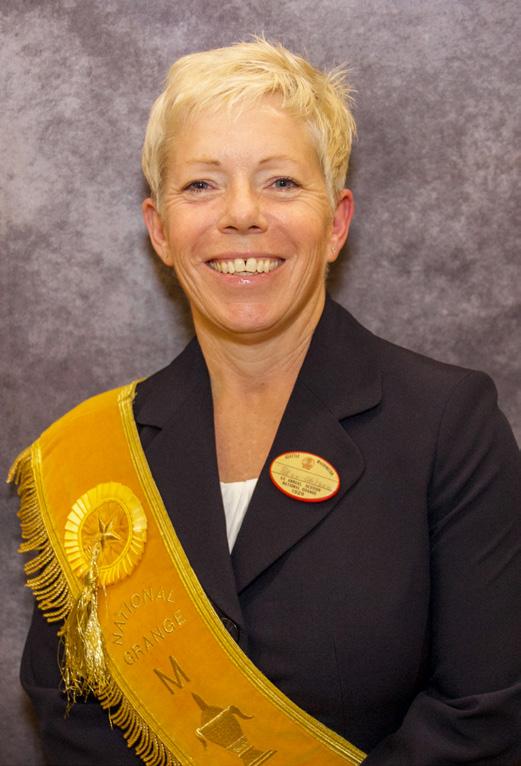
“Today, the needs are many, the challenges are real, and so too are the opportunities and the people ready to seize them,” Hamp said. “We have seen time and again that when rural voices are absent – or when those who care about rural prosperity – are not in the room, the essentials of our quality of life are the first to be trimmed from budgets.”


In her annual address, Hamp positioned the Grange as a unifying force, capable of addressing the many crises facing rural and small-town America. She called for the Grange to advocate on a wide variety of issues
continued on page 3

by Philip J Vonada National Grange Communications Director
On Friday, November 14, 2025, delegates assembled at the 159th National Grange Convention elected Christine Hamp to her second term as President of the nation’s oldest fraternal rural advocacy and service organization. Hamp was first elected in 2023 in Niagara Falls.
“It is an extraordinary honor to serve this organization, and I’m proud of what we are building together,” said Hamp. “As we enter our 160th year, I am inspired by the thousands of Grangers who show up – quietly, faithfully, and fiercely – for their neighbors and their communities. Their commitment fuels my own and reminds me why our work matters now more than ever, and their example calls us to expand our reach, amplify our voice, and build a Grange that will continue to change lives for generations to come.”
A fourth-generation Grange member, Hamp resides in Spokane, Washington. During her first term, she oversaw the launch of several key initiatives, including the Rural Life Initiative and Project Sustenance, focused on strengthening communities across America.
Delegates also re-elected John Benedik of New Jersey as Vice President and William “Buddy” Overstreet of Texas to the Executive Committee, where two seats were open. The second seat was filled by Walter Hartley of North Scituate, Rhode Island, who previously served as National Grange Assistant Steward. Hartley is succeeded in that role by Doug Baldwin of Newton, Iowa.
Hartley serves as President of both the Rhode Island State Grange and Moosup Valley Grange #26. He works for the City of Warwick Police Department and is active in multiple organizations, including serving as Grand Knight of his Knights of Columbus council. He is also past President of the City of Warwick Municipal Employees’ Union and State Municipal Vice President with AFSCME Council 94.
Baldwin recently retired from the Air Force and Iowa National Guard after 20 years of service and several deployments, and is now the President of the Iowa
State Grange.
Continuing their service on the Executive Committee are Susan Noah of Oregon and Joseph Stefenoni of California.
Dr. Richard Stonebraker of Hagerstown, Maryland, was elected Lecturer/Program Director. Stonebraker also serves on the Grange Foundation’s Advisory Board and is the current President of the Maryland State Grange and an agriculture teacher and FFA advisor in the Frederick County Public Schools.
Also reelected were: Christopher Johnston (Michigan), Steward; Kathy Gibson (Massachusetts), Lady Assistant Steward; Kay Hoffman Stiles (Maryland), Chaplain; Joseph Goodrich (Vermont), Treasurer; Debra Campbell (Pennsylvania), Secretary; David Allen (North Carolina), Gatekeeper; Cindy Greer (Colorado), Ceres; Barbara Foster (West Virginia), Pomona; and Welina Shufeldt (Oklahoma), Flora.
The Assembly of Demeter, the National Grange’s judicial branch, also held elections on Friday afternoon. Roger Bostwick of Ozawkie, Kansas, was elected to a third term as High Priest. William “Chip” Narvel of Delaware and Martha Stefenoni of California were reelected as Archon and Annalist, respectively.
Finishing their terms were Lynette Schaeffer of Illinois, who served on the Executive Committee since 2017 and as Chairperson since 2021, and Tom Gwin of Washington, who was elected as Lecturer/Program Director in 2023.
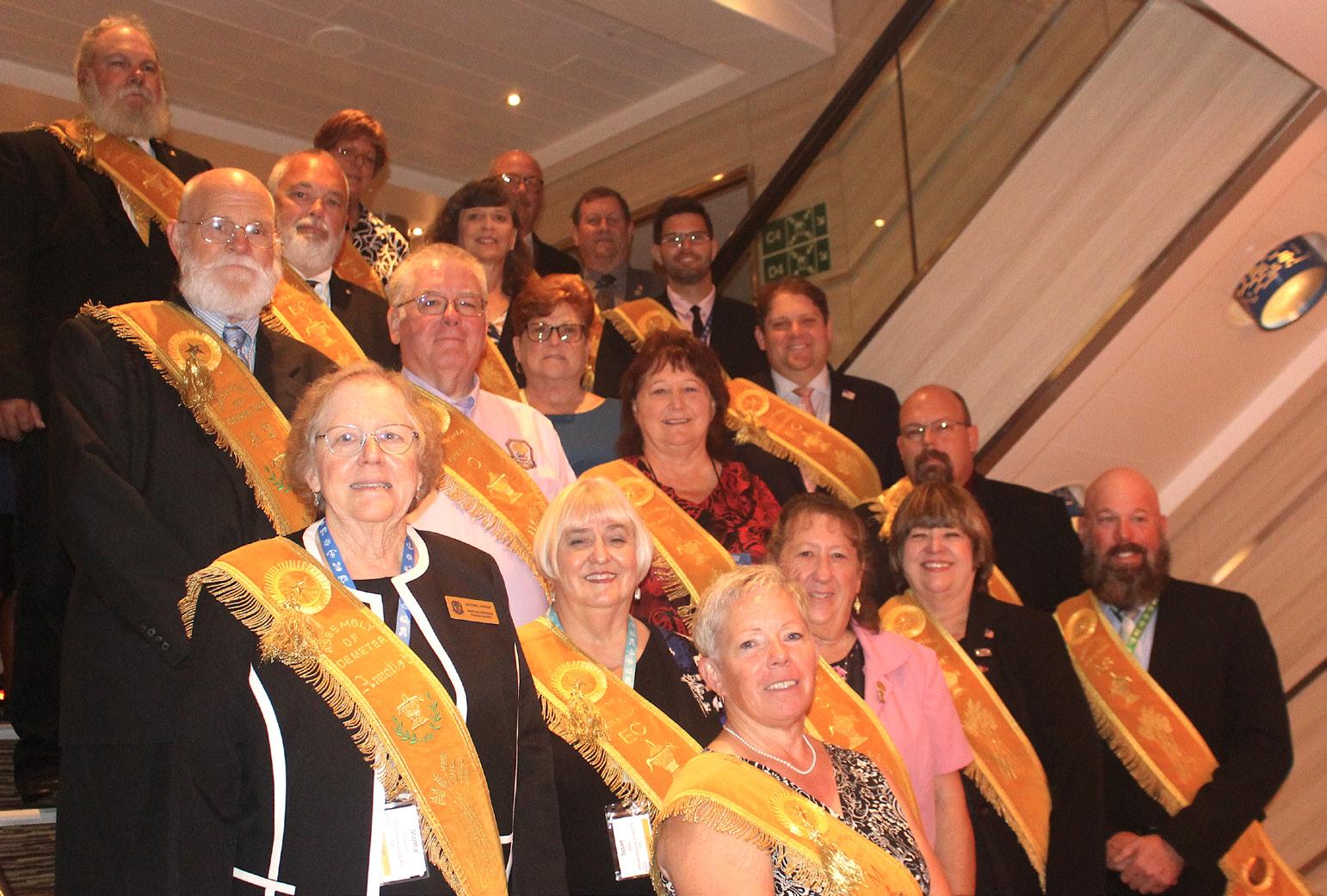
ELECTED TO SERVE - The officers of the National Grange who were elected to serve for the 2025-2026 Grange year.
that affect all who live in rural and small-town America, including agriculture, immigration programs, healthcare and mental health, veterans, infrastructure and rural development, education, and civic engagement.
“For almost 160 years, the Grange has stood as proof that when ordinary people come together with purpose, we can do extraordinary things,” Hamp said.
As the Grange has advocated for agriculture throughout its existence, a bulk of the annual address focused on a broad range of agricultural issues. Hamp warned that “a nation that cannot feed itself, cannot defend itself,” suggesting that consolidation, aging producers, and large farming corporations that overshadow local producers are threatening the future of family farms, and thereby national security. She highlighted that America continues to lose, on average, more than one family farm per day.
Hamp also criticized unsteady tariffs and trade disputes that disrupt markets, arguing that farmers “don’t need managed crises; they need functioning markets.” She urged federal, state, and local governments to pursue trade “rooted in reciprocity and reason.” She encouraged building stronger global relations and more reliable partnerships. “The Grange will always stand for trade that feeds families, sustains communities, and strengthens America.”
While welcoming new technology, Hamp warned that “progress without principle is profit without purpose,” and urged policymakers to ensure that innovations such as precision agriculture and artificial intelligence serve producers, not corporations, and empower local farmers instead of exploiting them for data.
Over the past few decades, the Grange has also made significant inroads in improving healthcare access in rural America. She stressed the growing crisis that rural America is facing, which includes rural hospitals closing at an alarming rate, a lack of access to specialists or even standard care, and rural Americans being priced out of access.
“We urge Congress to ensure stable, long-term funding of essential programs,” Hamp said, “These are not entitlements or handouts; they are investments in the health, dignity, and productivity of our people.” Hamp urged lawmakers to find ways to expand healthcare access in rural America, including the expansion of rural residency programs or the creation of incentives that attract highly qualified practitioners to rural areas.
continued from page 1
Hamp also called for a stronger emphasis to be put on mental health in rural America, citing that “suicide rates in rural counties are 60 percent higher than in urban areas, and 65 percent of rural counties have no psychiatrist at all.” She urged support for coverage of and access to mental health for all citizens, but particularly highlighted the need for support among veterans and caregivers.
One of the most significant issues hindering healthcare is a lack of access to broadband in rural America, Hamp said, which limits even telehealth options designed to reach vulnerable populations.
“In the 21st century, broadband is no longer a luxury – it is a lifeline… The Grange calls on federal and state leaders to complete the job of rural connectivity once and for all. Every farm, every business, and every home deserves equitable access to the tools of modern life –not just the bare minimum,” Hamp urged.
She called for increased investment in rural infrastructure, education opportunities, workforce development, entrepreneurship, disaster preparedness, and affordable housing. “Rural America doesn’t ask for charity. We ask for partnership – and a fair chance to build the future with our own hands.”
Hamp also called for the renewal of authentic civic engagement. “From the grassroots to the highest offices in the land, we must rebuild the habits of civility and cooperation,” she urged. With the United States’ semiquincentennial arriving in 2026, Hamp called on every American to rededicate themselves to “the ideals that shaped this Republic: liberty, equality, justice, fellowship, and service.” She also urged every citizen to renew their habits of volunteerism, civic engagement, and cooperation.
Positioning the Grange as the vehicle and voice that can help create real, lasting, positive change in rural and small-town communities around the nation. “Let us show up – in our communities, in our statehouses, in our schools and in our Grange halls... as authors of a movement,” Hamp said. “Let us welcome others to do so with us, shoulder to shoulder, amplifying our voice… bound together by purpose, sustained by service, and committed to one another.”
Hamp closed with one final call for unity and purpose. “When rural America thrives,” she concluded, “so too does the nation.”
Following her annual external address, National Grange President Christine Hamp also delivered an internal address that highlighted many of the issues the National Grange is facing and tackling in the coming year.
Her address, entitled “Grange Strong: Our Call to Act,” celebrated progress, confronted hard truths, and challenged members nationwide to lead with courage and conviction.
Hamp began by reminding members that the Grange’s strength lies in connection. Just as a quilt is stitched from many pieces, the Grange binds people, farms, and communities together into something stronger than any single thread. That connection took a major leap forward this year with the launch of Grange Engage, a new online platform that links members nationwide with resources, training, and fellowship. The project wasn’t without challenges, but the result, Hamp said, is worth every bit of effort. “Modernization doesn’t mean losing our soul,” she told attendees. “It means strengthening our connection.” She encouraged all Grange members to participate in the process of creating a better, stronger connection with one another.
That sense of purpose carried through her discussion of Project Sustenance, the Grange’s initiative to promote food security, personal sustainability, and community resilience. Over the past year, more than $60,000 in grants helped local Granges feed families, mentor youth, support seniors, and strengthen their towns. Those efforts didn’t just make a difference—they also brought in hundreds of new members. “People don’t join organizations,” Hamp said. “They join impact.”
Reviewing some of the successes of this past year, Hamp noted the success of the Three-Board Retreat, which united the governing boards of the National Grange, Grange Foundation, and Grange Advocacy. She also commended the efforts that went into preserving Grange’s heritage while moving forward with the professional recording of the Seventh Degree in April
2025. She urged members to consider moving forward and performing the same preservation for the additional Degrees.
Introducing new initiatives and programs, Hamp announced the launch of a Convention Management Team, working to make National Grange conventions an “exhilarating and memorable experience” for all Grange members. “We didn’t make this change because the old way failed,” Hamp said, “We made it because our members deserve better, and reexamining our goals and processes can make that happen.”
Hamp announced that the National Grange has launched a new pilot program in six states that offers greater flexibility in chartering a Grange, making it more adaptable to meet community needs. “This is the Grange at its most alive,” Hamp said. “Being a Grange isn’t about the building – it’s about belonging.”
Hamp also announced that the Grange is embarking on its first rebrand in over 60 years, with early steps now in place and a full launch in 2026. This initiative isn’t meant to change who the Grange is, but rather to show who we already are, and to highlight our relevance and united purpose through a contemporary lens.
Additionally, the National Grange will work with the presidents and other leaders in every State Grange to develop Performance Improvement Plans to bolster membership opportunities and establish new Granges while strengthening existing ones.
However, Hamp cautioned that it is not just up to highlevel leaders to make the Grange intentional and relevant in every community. “Our members are watching how we lead,” she said, “If we model courage, they will be courageous. If we lead with conviction, we turn resolve into movement.”
“Let us be the generation that acts with boldness, not timidity,” she concluded. “The future is ours to create… because together, we are Grange Strong.”
As the National Grange continues to shape the organization we are today—and the one we aspire to be tomorrow—we want to hear directly from our members across the country.
Whether you joined last week or have been part of our community for generations, your voice matters. We invite you to answer one simple but meaningful question: “What does the Grange mean to you?”
Please visit our VideoAsk link to share your perspective — ideally through a quick video recorded on your phone. The form includes just two brief questions, and each response should be 60 seconds or less.
Share your insight and help guide the future of our organization by visitingt https://grange.biz/videoask or scan the QR code.
Your story helps shape our story.

This fall through next April, the Grange Foundation is encouraging members and friends of the Grange to celebrate unity through movement by participating in the Common Routes: Choose Your Challenge event.
This virtual -thon allows individuals to support the work of the Grange Foundation at the level and with the activity of their choice, from running a 10K to taking a few long Sunday drives. Pets and children can even take part!
“The idea is simple - use your time on the move to reflect on the impact the Grange has had on your life or community and share that with others,” Grange Foundation Chairman John Benedik said. "You can choose how you want to participate, when you want to participate and in doing so, you’ll move the Grange Foundation forward into 2026 and beyond.”
Adult and Junior racers will receive a cooling towel and sticker pack. If you sign up a child under 5, you will receive a special waterproof “Baby’s first 5k” sticker.
You can even choose to have your pets get in on the fun by signing them up to take part in the pup strut - though it’s

open to any pet you’d like to participate. They will receive an event-branded pet bandana.
Racers are encouraged to have friends register and enjoy being on the move together, but they may also want to secure sponsors. By encouraging people who do not wish to race to sponsor you, you’ll be helping the Foundation and entered into our contest for “biggest fundraisers.” Just tell your friends and family to click the donate button on the website, select their amount and choose “Other” and enter your name under the On Behalf Of option.
To honor the idea that you can choose your challenge and move any way you’d like, we’ve also created a Sunday Driver
and passenger category. Sunday drivers will receive a keychain and sticker pack. Passengers will receive an event sticker pack.
Finally, if you don’t want to race or drive but still wish to support the Grange Foundation and have your name added to the event supporters, you can register as a cheerleader.
Registration is open now through Grange Month (April)!
When you register however, you will receive a digital bib so you can show your support and participation on social media platforms. Print the bib and hang it at your hall or office to encourage others to take part. Swag items will be sent by mail.
“This is a great way to get a friend to support the Foundation and learn why the Grange is important to you while walking, running, biking, riding or doing any other type of movement that you choose,” Grange Foundation Associate Amanda Brozana said. "No matter what mode of movement you choose, we challenge you to share the value of Grange with others through this event."
Register here: https://runsignup.com/ grangefoundation
During the fall and winter seasons, respiratory illnesses like flu, COVID-19, RSV, and pneumococcal disease will circulate widely. Adults 50 and older face higher risk of severe illness from these infections. But there’s good news: vaccines can help protect you and those in your community.
This season is the perfect time to talk with your healthcare provider about which vaccines are right for you. Flu vaccines are routinely recommended during respiratory season. RSV, and pneumococcal vaccines may also be advised depending on your age, underlying medical conditions, and vaccination history.
2025-2026 COVID-19 vaccines are also recommended by the Centers for Disease Control and Prevention (CDC) based on individual decision-making for those 6 months to 64 years of age, especially if you are at increased risk for severe COVID-19, as well as for adults 65 years and older.
Individual decision-making means that the choice to get vaccinated is best made individually and CDC encourages you to talk to a health care provider, like a doctor, nurse or pharmacist, to help make the best choice for you. However, you don’t need a prescription to get a COVID-19 vaccine. COVID-19 vaccines are covered by both public (Medicaid and Medicare) and private insurance, including employer-sponsored insurance, without cost-
sharing.
Getting vaccinated helps protect your family and community.
Don’t wait until you or a loved one gets sick — stay prepared and stay protected with vaccination — it can mean the difference between a mild infection and a severe illness.

CVEEP is proud to collaborate with the American Lung Association (ALA) this respiratory season to bring you resources and tools to stay protected against severe illness this fall and winter. Visit cveep.org/vaccines-protect to learn about the importance of staying up to date on respiratory vaccinations.

The government shutdown ended on November 12, with a continuing resolution to fund the government through January 21, 2026. The Senate voted 60-40 in favor of the stopgap funding bill, with eight Democrats voting in favor and one Republican opposing the measure. The House then voted 222-209 to pass the legislation, with six Democrats voting yes and two Republicans voting no. This was the eleventh government shutdown and the longest in U.S. history. The measure contained appropriations bills to fund USDA, FDA, Veterans Affairs, military construction, and the legislative branch for the full fiscal year, which ends September 30, 2026. For all other government entities, a new funding vehicle must be adopted by January 21, 2026. The HouseSenate compromise bill provides back pay for government employees, reinstates furloughed employees, and prohibits further reductions in force until January 21. SNAP recipients will receive full benefits for October and November. In a major shift of jurisdiction, USDA was instructed to work with the State Department to prepare a process to transfer the Food for Peace foreign food aid program from State to USDA. The remaining sections of the farm bill, which were not included in the One Big Beautiful Bill Act (signed July 4, 2025), were extended for one year and retained the longstanding prohibition of the closure of Farm Service field offices. A side agreement to the legislation promises Congress will address health care issues in December, including enhanced premium tax credits and Medicare cuts.
Crop growers are facing a third straight year of financial struggles. Producers who lived through the generation-defining farm crisis four decades ago point to market price slumps, soaring input costs, and global trade disruptions as indicators that the ag economy could tip into the worst shape in 45 years. Ninety-one percent (91%) of agricultural economists recently surveyed by the Farm Journal believe the crop sector is in a recession. This is up from 53% in July. In addition, farm sector debt has risen alarmingly in 2024 and 2025. Congress continues to discuss various forms of relief payments to crop producers, with possible action in December.
The United States does not have enough fertilizer production capacity to meet producer demand and relies heavily upon volatile global supply chains. Recent tariffs have exacerbated the situation that led to surprise price hikes and scarcity shocks. There is growing concern that fertilizer supplies will be insufficient
to grow the country’s 2026 crops. As a result, the administration added potash and phosphate to its critical minerals list, which are defined as commodities essential to the economic or national security interests of the U.S. As critical minerals, potash and phosphate are now eligible for tariff carveouts.
China is deepening its stranglehold on key amino acids and vitamins used in livestock feeds. According to an American Feed Industry Association report, China accounts for 80% of five key supplements, and another five supplements rely on China for more than 50% of imports. These supplement ingredients, relied upon heavily by the broiler and pork industries, include lysine, vitamins A, B1, B2, B12, D3, and E, and threonine, methionine, and tryptophan. Efforts are underway in Congress to strengthen U.S. resiliency with the bipartisan, bicameral Securing American Ag Act that directs USDA to analyze America/s dependency on China across a wide array of ag inputs.
President Trump, who frustrated cattle producers with his push to lower beef prices, is directing the Justice Department to investigate major meatpackers for possible price-fixing and manipulation. The President is reportedly frustrated that futures prices for cattle have declined significantly, while boxed beef prices have risen. Four companies, Tyson Foods, JBS, Cargill, and National Beef, dominate beef processing.
The Environmental Protection Agency and Army Corps of Engineers will take another stab at establishing a “durable, common-sense definition of waters of the United States” (WOTUS) under the Clean Water Act. EPA Administrator Lee Zeldin says the previous rule failed to properly implement the Supreme Court decision in the Sackett Case, which more clearly defined adjacent wetlands, continuous surface connection, and tributary..
Many rural and small-town residents get assistance with their health insurance premiums through a program known as enhanced premium tax credits. Created by the Affordable Care Act a decade ago, tax credits were designed to help individuals and families lower their cost of health insurance purchased through the Health Insurance Marketplace. During the COVID
pandemic, Congress temporarily expanded eligibility for these credits to make coverage more affordable for middle-income and rural households. These temporary enhanced premium tax credits are set to expire on December 31, 2025, unless they are extended by Congress. Subsidized enrollment more than doubled between 2020 and 2025, primarily due to the enhanced premium tax credits. If enhanced credits are allowed to expire, insurance premiums could double, rural hospitals will lose even more money by treating more nonpaying patients, and families will have to make difficult choices between health care and other basic needs. The National Grange is encouraging Congress to extend the enhanced credits or enact an equitable alternative. See the enhanced premium tax credits factsheet in this newsletter.
Many rural doctors report that political attacks on science and medicine are affecting their relationships with patients. Increasingly, they say misinformation and conspiracy theories about health fill a vacuum created by a lack of doctors in rural areas. This conundrum makes it even more difficult to recruit doctors for rural practices. Recent dramatic changes to immigration policies have made the recruitment of overseas talent tougher and too expensive.
Pharmacy Benefit Managers (PBMs) are business entities that operate between the drug manufacturer and patient and play a powerful role in determining which medications are accessible and affordable. Three PBMs process nearly 80% of prescription drug claims, which gives them tremendous power over drug pricing that drives up drug costs, limits patient choice, and makes it difficult for employers to negotiate contract terms for medications. The National Grange joined 127 medical, pharmacy,
consumer, and patient groups on an open letter to Congress to request PBM transparency and operational reforms, including:
• Full transparency of PBM practices, including business arrangements, financial incentives, and formulary design.
• Ban spread pricing, which allows PBMs to profit from the difference between what they charge for insurers and reimburse to pharmacies.
• 100% pass-through of rebates, discounts, fees, and other payments from drug manufacturers to plan sponsors and patients.
• De-link PBM compensation from drug prices.
The National Grange and the Connect Everyone Coalition are supporting modernizing outdated space policies to reduce unnecessary hurdles in the space sector, including for Low Earth Satellites (LEOs) supporting broadband deployment to remote areas. In a letter to the nine responsible federal agencies, the Coalition pointed out that outdated regulatory burdens should be transformed into a swift, predictable approval process for routine launches to enhance American competitiveness, innovation, and leadership. The letter called for the agencies to:
• Establish a unified routine launch approval process through interagency coordination.
• Eliminate multiple redundant agency environmental reviews that analyze the same data.
• Codify shared standards so the same rocket conducting the same mission from the same pad will not require separate safety reviews by multiple agencies.
continued on page 6
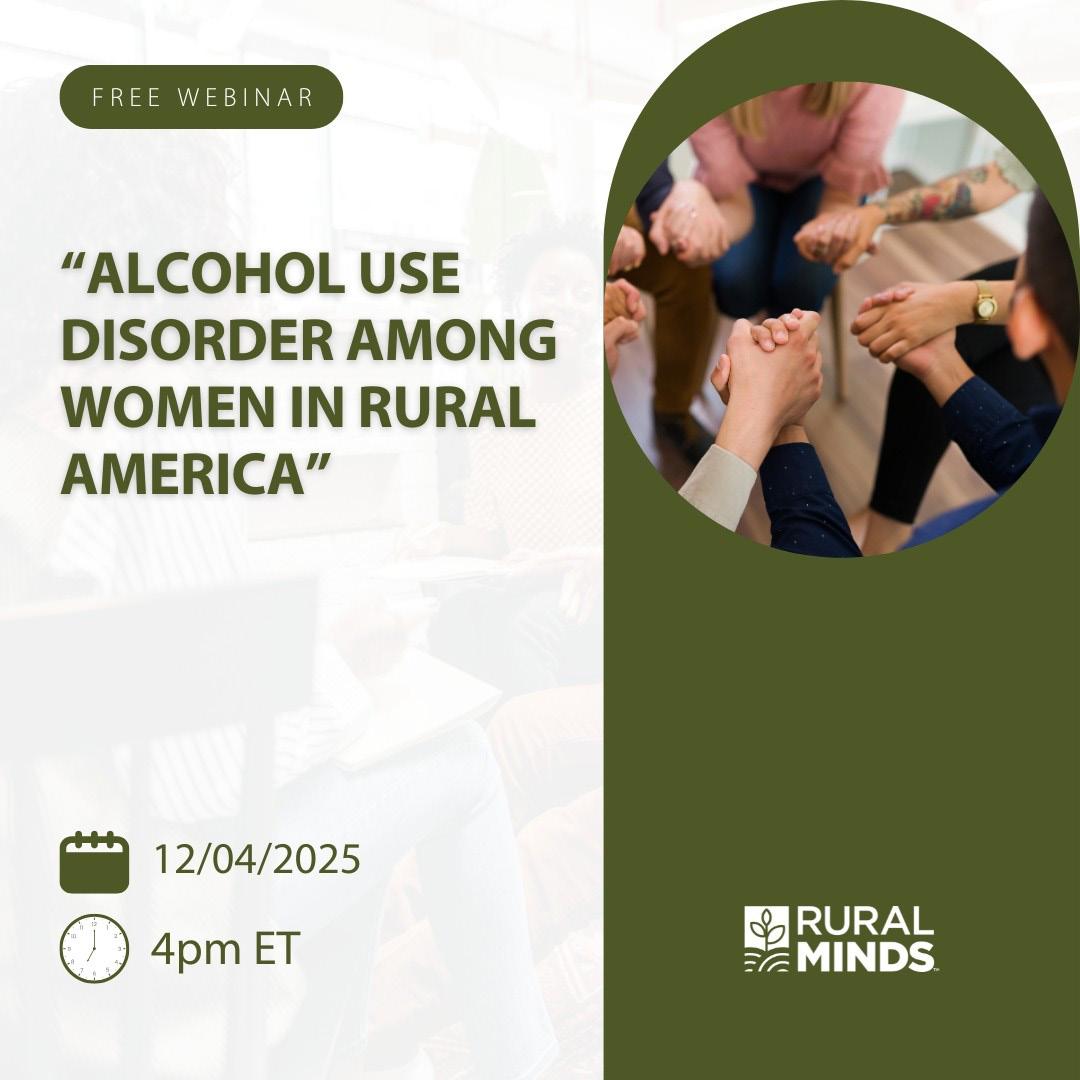
Join Rural Minds and the National Grange on Thursday, December 4, 2025, at 4 PM ET / 1 PM PT, for our next free Connections webinar: “Alcohol Use Disorder Among Women in Rural America.”
Women in rural communities often face additional barriers when it comes to alcohol misuse – from isolation and stigma to limited access to care. And as the holidays approach, the added stress and social pressure can make things even harder.
In this moderated, one-hour webinar, you’ll hear Heather Majewski share her powerful lived experience with alcohol use disorder (AUD), along with Dr. Pravesh Sharma from Mayo Clinic, who will discuss new research focused on supporting women with AUD in rural America.
Learn more and register for free: bit.ly/43L6dXg.
Lowly soybean drives China trade deal
China is normally the largest buyer of U.S. soybeans. But in response to tariffs and trade wars with America, China had not made any soybean purchases through October, causing soybean market prices to fall drastically. President Trump met with Chinese President Xi Jinping in late October and emerged with an agreement for China to resume purchases of U.S. soybeans in similar volumes to recent years as a central component of a new U.S.-China trade deal. While on his three-leg Asian tour, the President also announced a flurry of trade agreements with Japan, Malaysia, Cambodia, Indonesia, Vietnam, Thailand, the Philippines, the United Kingdom, and the European Union.
Cattlemen take issue with Argentinian beef
In late October, the President announced his intention to raise Argentina’s beef tariff-rate quota to 80,000 metric tons from 20,000 metric tons to lower U.S. beef prices. The announcement caused the futures market for beef to plummet. Domestic cattle herd numbers are low, and feeder cattle normally imported from Mexico are at a standstill due to screwworm outbreaks. Strong consumer demand for beef and low beef supplies have exacerbated high beef prices. Farm and ranch state lawmakers and cattlemen argue that beef producers should be allowed to make a profit in this time of high input
costs and drought conditions in cattle country, adding that high prices will incentivize herd expansion, more beef, and lower beef prices. The good news is that Argentine imports will be lowerquality meat destined for products like hamburgers.
Every day expenses Americans want Congress to prioritize High inflation rates and soaring consumer prices are high priorities for cash-strapped voters. Here are their priorities for Congress to address:
• Health care - 31%
• Food - 22%
• Housing - 22%
• Electricity - 5%
• Gas - 4%
View From the Hill is written and compiled by Burton Eller National Grange Legislative Director beller@nationalgrange.org

“What we’re really talking about
is a wonderful day … when no one diets. I mean, why else would they call it Thanksgiving?” - Erma Bobeck, American humorist
“I find that it’s the simple things that remind you of family around the holidays.”
- Amy Adams, Golden Globe-winning actress
“The holiday season is a perfect time to reflect on our blessings and seek out ways to make life better for those around us.” - Anonymous

by Annie Johnson National Grange Legislative Intern
Across the United States, agriculture is grappling with a challenge that threatens the stability of our entire food system: a shrinking, uncertain farm workforce. From dairy barns in Wisconsin to the vegetable fields in California’s Imperial Valley, producers are struggling to find enough hands to get work done. And despite impressive advances in agricultural technology, much of the work that sustains American farms still depends on skilled human labor.
For decades, migrant workers, many from Mexico and Central America, have filled that role. Today, they make up most of the nation’s farm labor force. Yet the federal policies intended to help farmers legally hire these workers have not kept pace with the needs of modern agriculture. The result is a system that is slow, complicated, and often inaccessible, especially for small and mid-sized farms. As labor shortages intensify and production costs rise, the need for a more efficient, fair, and reliable workforce pathway has never been more urgent.
Migrant labor has long been woven into the fabric of American agriculture. During World War II, when U.S labor was scarce, the Bracero Program allowed Mexican Workers to fill critical jobs in the fields. While the program ended in 1964, the underlying reality remained: American farms needed additional labor, and migrant workers were willing and able to do the job.
Over time, as domestic interest in farm labor declined and agriculture became more specialized and laborintensive, farmers increasingly relied on migrant workers, many of whom lacked authorized status. Today, an estimated half of America’s farmworkers are undocumented. This creates uncertainty not only for workers who fear deportation, but for farmers who depend on their labor to harvest crops and care for livestock.
In recent years, the H-2A agricultural visa program has become the primary legal channel for hiring workers. Its use has expanded dramatically, growing from fewer than 80,000 certified positions in 2011 to more than 370,000 in 2022. Yet, despite that growth, many producers
still struggle to access the program due to lengthy paperwork, multiple agency approvals, tight deadlines, and high costs. Even minor delays can leave growers without workers during short, critical harvest windows.
At the same time, political debates surrounding immigration have produced fear and instability in rural communities. Workers are hesitant to travel. Farmers are unsure whether they will have access to the labor they need. Consumers ultimately feel the impacts through higher prices and unpredictable supply.
Automation is transforming agriculture. Robotic milkers, smart irrigation systems, and autonomous tractors and precision technologies have improved efficiency, safety, and long-term productivity. But in many sectors-especially fruit, vegetable, and dairy operations- technology can only go so far. Harvesting delicate produce, managing livestock health, or maintaining orchards still requires human skill, judgement, and care.
continued on page 10
by Amanda Brozana National Grange Membership & Leadership Development Director

On October 28, the Grange Foundation held its annual meeting and election. This year, three seats on the advisory board were up for election.
Following the 159th Annual National Grange Convention, the Grange Foundation Board and Advisory Board met to reorganize and elect new officers.
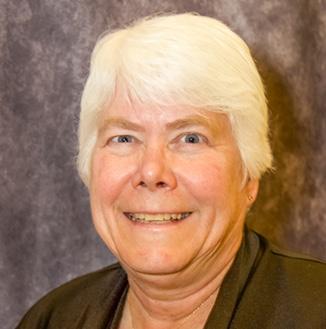

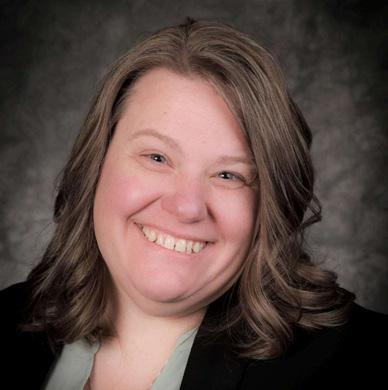
Two incumbents, Anna May Nauss of Pennsylvania and Richard Stonebraker of Maryland, were reelected, while Sarah Strawder of Kansas won her first term. Strawder succeeds her husband, Nathan Strawder, who completed a term of service on the board.
Nauss, a member of Valley Grange #1360 for more
than 50 years, has served on the Foundation Board since 2022 and currently chairs the scholarship committee. A retired credit union CEO with decades of leadership experience, she remains active at every level of the Grange and was also reelected by the board to continue serving as Grange Foundation secretary.
continued on page 16
For small and mid-sized farms, adopting high-tech solutions is often financially out of reach. Thin operating margins, expensive equipment, and limited technical support make it difficult to transition to automation. A dependable workforce remains essential to sustaining rural economies.
While sweeping immigration reform may feel out of reach, there are immediate practical steps policymakers can take to relieve pressure on farmers. The most achievable and impactful solution to modernize and streamline the H-2A program
A modernized system would:
• Create a centralized online application platform
• Reduce delays through better coordination among the Department of Labor, Department of Homeland Security and the State Department
• Provide clearer, bilingual guidance to employers and workers
• Improve consistency so farms can plan with confidence
• Protect workers while easing compliance burdens
These changes would give farmers reliable access to the legal workforce they already depend on, while ensuring transparency and fairness for workers.
Some experts and agricultural organizations also support an earned legal status program for long-term farmworkers already living and working in the U.S. Although politically difficult, such a pathway would stabilize rural communities, reduce worker turnover, and strengthen food security. A settled, experienced workforce benefits everyone from farmers to consumers.
Labor shortages have immediate, real-world consequences. When farmers cannot find enough workers, crops rot unpicked, livestock care declines and production delays increase. The results are higher grocery prices, fewer domestic food options, and heavier reliance on
imports. Rural communities also suffer as farms scale back or close due to labor challenges.
Farmers are known for their resilience and innovation, but they cannot solve this issue alone. Ensuring a dependable labor supply is not only an agricultural concernit is a national priority tied directly to the cost, quality, and availability of our food.
Improving the H-2A program is not the final solution, but it is a crucial first step toward stabilizing the agricultural workforce. By modernizing the system, supporting farmers and ensuring fair treatment for migrant workers, the United States can build a more reliable, sustainable agricultural future.
Our food security depends on the people who work in America’s fields, barns, and orchards. They deserve a system that works for them, for farmers, and every family that relies on American agriculture.
On Friday, November 21, National Grange Honors Night was presented online and streamed live on YouTube and the National Grange’s Facebook page.
The evening was designed to honor the Grangers who built the legacy we work from today, and celebrate the great work being done in Grange Halls and by Grangers nationwide. It included the Grange Hall of Fame induction, a Celebration of Remembrance led by National Grange Chaplain Kay Hoffman Stiles, and departmental awards for the year.
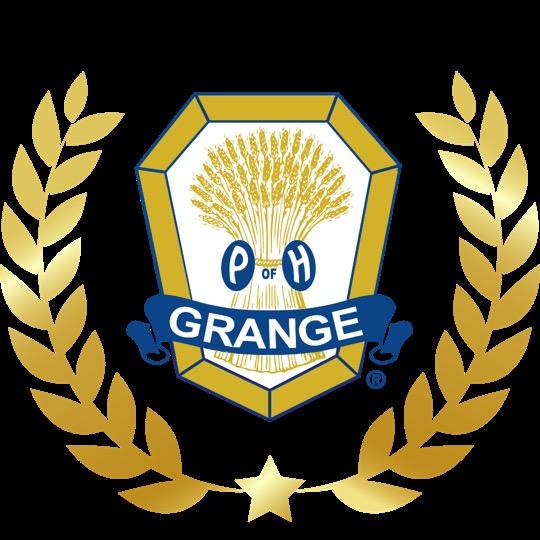
National Grange President Christine Hamp welcomed everyone to the evening, highlighting that the event would be “a tribute to excellence, to service, to creativity, and to the enduring spirit that has carried our organization forward for nearly 160 years.”
George Spies, a member of the Grange Hall of Fame Team, submitted this year’s honoree for the Grange Hall of Fame, and presented his information.
The 2025 inductee to the Grange Hall of Fame is Don
Sebastiano Marulli, Duke of Ascoli. Marulli was the Pritano, or life-long high priest and supreme head of the Order of Demeter, who secretly continued the celebration of the Eleusian Mysteries of the goddess Demeter; as a decsendant of one of the lines of Eleusis, said to have been chosen by Demeter in 1216, Marulli worked to preserve the mysteries and ceremonies.
In the 1850s, Francis McDowell - who would later be known as one of the Founders of the Grange, met the Pritano and was initiatied into the Order. It was Marulli’s hope that McDowell would share the Order with the United States and initiate other, providing written instructions on conferring the Degree of Demeter.
In 1867, McDowell met William Saunders at an agricultural fair in central New York. Saunders was making inquiries on behalf of Oliver H. Kelley’s idea for a secret American Order for Agriculture. In January 1868, the Order of Patrons of Husbandry officially adopted the rites and ceremonies of the European Order of
continued on page 11
Demeter for its highest controlling body - now known as the Assembly of Demeter; McDowell would be its first High Priest.
Unfortunately, the Duke of Ascoli died in 1866 and never saw the fruits of his labor spread in the United States. However, since then, more than 200,00 individuals have been initiated into the Order of Demeter.
The Duke of Ascoli, Don Sebastiano Marulli’s gift to the people of the United States and especially to the Order of Patrons of Husbandry is gratefully acknowledged and his place eternally secured in the National Grange Hall of Fame.
Paolotto Marulli, a descendant of Don Sebastiano, also joined the Honors Night from his home in Italy, thanking the National Grange on behalf of his family.
National Chaplain Kay Hoffman Stiles chose the theme “Footprints in the Sand” for this year’s memorial service, which included remembrances and eulogies for many National Grange leaders, including:
• Ted Emory Amick, National Grange Extension Director, 1972-1974
• Richard Barry “Dick” Weiss, National Grange Chief Operating Officer, 2002-2007
• Mary S. “Sharon” Croucher, First Lady of New York State Grange, 1995-2007; National Grange Delegate from New York, 2012-2021; National Grange Youth Co-Director, 1981-1983
• Margaret Ann Weaver Smithers, First Lady of Texas State Grange, 2008-2016
• Joseph William Fryman, President, Nebraska State Grange, 2004-2012; National Grange Treasurer, 2007-2009; National Grange Executive Committee, 2009-2017
• Barbara Ann Pagler Rush, First Lady, Rhode Island State Grange, 1986-1990
• John J. “Jack” Cottrell, President, Rhode Island State Grange, 1998-2002
• Michael Keller Lynch, President, Delaware State Grange, 2012-2020
• Janet Morvatz Price, National Grange Deaf Activities Director, 1988-2001
• Vera LaVerne Reichardt Schif Smith, First Lady, Kansas State Grange, 1984-1987
• Patricia “Patty” Cottrell, First Lady, Rhode Island State Grange, 1998-2002
Connie Johnston, Distinguished Grange Administor, kicked off the awards portion of the evening by announcing the 48 Distinguished Grange recipients for the year, which included four State Granges, five Pomona Granges, and 39 Community Granges.
State Granges honored included Maryland State Grange (16 years), Pennsylvania State Grange (14 years), New York State Grange (8 years), and Michigan State Grange (4 years).
Also honored were three Community Granges who have reached “Distinguished” status each year since the program began - Five Mile Prairie #905 (WA), Redland #796 (OR), and Stanford #808 (NY).
Applications for the 2025-2026 year are already available online. Johnston reminded everyone that the program is open to State, Pomona, Community, and Junior Granges, and that “every Grange has the ability to be Distinguished.”
National Grange Sales, Benefits, and Member Programs Director Loretta Washington recognized the 181 Granges, including 5 Juniors and 8 Pomona Granges, who qualified as Granges in Action.
Additionally, she recognized three State Presidents in Action - Joseph Stefenoni (CA), John Benedik (NJ), and Tom Gwin (WA).
Finally, Washington recognized the Alexander Family from Merriconeag Grange #425 in Maine as this year’s Legacy Family - honored for having five generations of Grange membership - all at the same Grange.
Past National Grange Lecturer Tom Gwin presented the Lecturer’s Department awards for the 2024-2025 Grange year. Best of Show awards included:
Quilt Block - Deborah Lancaster (ME)
Garden Design - Richard & Eileen Javaux (ID)
Design a Program - Suzy Ramm (OR)
Creative Writing - Leslie Nutter (OK)
Virtual Photography - Adults - Stephanie Day (WA)
Virtual Photography - Juniors - Bridget Klein (WA)
A full list of Lecturer department winners will be included in the January 2026 issue of Good Day! magazine. Amanda Brozana, National Grange Membership & Leadership Development Director, presented the 2025 Cultivators of the Year to:
• California State Grange
• Jody & Jodi Ann Cameron (CT)
• Marty & Joyce Billquist (MT)
• Eugene Fletcher (MI)
• Deborah Edwards (DE)
• Charlie Deach (WA)
These awards are given annually to Grange members who go above and beyond in working to make the Grange more accessible, or who do extraordinary work in their states or regions when it comes to member recruitment and engagement.
These awards go hand-in-hand with the Grange Connector Awards, which were presented by Communications Director Philip J Vonada. These
page 13
by Makayla Piers
National Junior Grange Advisory Team and Jennie Gentry
National Grange Youth Advisory Team

This year, we tried something completely new: hosting the Junior Grange activities during National Session aboard a cruise ship to the ABC Islands. None of us knew exactly how it would go, but the moment we boarded, it became clear that this environment suited our Juniors perfectly. With families everywhere, activities buzzing around us, and a relaxed, vacation-like rhythm, the ship created a setting where the kids settled in immediately. Ready to explore, participate, and represent the Junior Grange in ways that felt natural and effortless.
Our mornings were spent in workshops, which quickly became a favorite part of each day. Laci Lies, National Junior Grange Ambassador, and each Ambassador candidate created and taught their own sessions, giving the entire week a “kids teaching kids” energy. We explored agriculture in the ABC Islands, ocean farming, sustainability, and environmental topics through hands-on activities. Water quality testing was an instant hit. Juniors used real test strips and were fascinated to see the results change. They compared colors, made predictions, and jumped right into conversations about why water quality matters, whether you’re farming on land, raising fish in the ocean, or simply caring for your hometown community.
Of course, we added in fun along the way. Bingo quickly became loud and chaotic in the best way possible, and “questions for prizes” had Juniors practically leaping out of their seats to answer correctly. Even kids who usually hang back suddenly found themselves raising their hands. The Ambassador candidates grew so much through this process. Leading younger kids, explaining ideas in their own words, and discovering how capable they truly are.
Beyond the workshops, something even more powerful happened. The Juniors naturally became representatives for the Grange. Without any prompting, they talked to families around the ship about what we were doing. They shared their excitement, explained their activities, and invited new friends to join us. They proudly talked about what the Junior Grange meant to them. It wasn’t a recruitment strategy…it was genuine enthusiasm.
And the best part? It worked. One cruise family was so intrigued that they joined a workshop, had a wonderful time, and later connected with a leader in their home state. They’re now considering membership! Being on the ship made this type of outreach possible - families were all around us, and the Juniors embraced it.
Afternoons were for family time. Juniors, families, and
friends played putt-putt (and tried to rescue golf balls determined to leap into the ocean), ping pong games, swam, relaxed, and explored every corner of the ship. The balance between structured learning and carefree fun created a rhythm that was perfect for the Juniors. Families appreciated being able to join in, and the Juniors were excited to show their parents what they were working on.
As the week wrapped up and we returned to land, we gathered to celebrate achievements earned through dedication and service throughout the entire year.
Creative Art winners:
The Creative Art contest didn’t disappoint. Our Juniors filled their pages with bold colors, big ideas, and tons of heart.
Ages 5–8: 1st – Hadley Miller (PA), 2nd – Cyrus Reyburn (PA), 3rd – Huntley Miller (PA)
Ages 9–11: 1st – Scarlet Gotauco (RI), 2nd – Camden Miller (WA), 3rd – JB Roth (WA)
Ages 12–14: 1st – Lily Piers (RI), 2nd – Paige K (WA), 3rd – Elijah Berg (WA)
Creative Writing Winners:
These entries were fun, thoughtful, and beautifully written. Our Juniors truly put their hearts into their words.
Ages 5–8: Tobias Darling (NY)
Ages 9–11: Paige Darling (NY)
Placemat Contest Winners:
Bright, fun, and full of personality, this contest brought out the artistic side of our Juniors in the sweetest way.
Ages 5–8: Paige Darling (NY)
Ages 9–11: Tobias Darling (NY)
Wreath Contest:
Our wreath entry showed a wonderful mix of creativity and craftsmanship and was beautifully made.
1st – Carly Hanel (NY)
Community Service Award:
Cohen Piers of Rhode Island demonstrated exceptional dedication by raising nearly $4,000 for wildlife conservation. His commitment to service extended further when he chose to donate $400 of his own funds to support Texas flood victims, exemplifying the compassion and integrity that define the Junior Grange mission.
Cape of Honor Recipients:
Makani Delovio, Bryce Vecoli, and Keanu Delovio (all from Connecticut) were honored for completing 10–50 hours of meaningful service. These Juniors stepped up again and again throughout the year, helping others with consistency, compassion, and a genuine desire to make a difference. Their efforts remind us that leadership isn’t about age, it’s about heart.
continued on page 14

The America’s 250th Grange Workgroup is celebrating our country’s 250th Anniversary by “throwing back” to some classic recipes from Grange cookbooks. Do you have favorite recipes that evoke the American spirit which you would like to see published again? Send them to Lew Gaskill at olgaskill@comcast.net. Please include which Grange cookbook your recipes come from.
This week’s recipe comes from What’s Cookin’ in the Grange (2000).
Here’s an idea to use your leftover Thanksgiving turkey meat!
Yield: 10-12 servings
7 cups chopped cooked turkey or chicken
2 Tablespoons lime juice (optional)
2 cups Raisins
2 cups dry roasted peanuts
2 cups chopped celery
2 cups chopped green bell pepper
1 cup flaked coconut
Recipe courtesy of Cindy Greer Marvel Grange #479, Colorado
1 cup mayonnaise
1 cup yogurt
1/2 cup minced onion
3 Tablespoons chopped chutney
2 teaspoons lemon juice
1 teaspoon curry powder
Combine the turkey and lime juice in a bowl and mix well. Marinate, covered, in the refrigerator for 8 to 10 hours.
Combine the turkey, raisins, peanuts, celery, green pepper and coconut in a bowl and mix well. Chill, covered, until serving time.
Combine the mayonnaise, yogurt, onion, chutney, lemon juice and curry powder in a bowl and mix well. Chill, covered, for 4 hours or longer. Stir the chutney dressing into the turkey mixture just before serving or serve on the side.
awards, designed to honor Granges and Grange members who excel in communication efforts were awarded to:
• Connecticut State Grange
• Valley Grange #1360 (PA)
• Joe Miczak (NJ)
• Codi Titus (WA)
Makayla Piers, a member of the National Junior Grange Advisory Team, presented the Junior Grange Awards. A full list of awards can be found in the Junior Grange article on page 12.
Major awards presented included the Junior Grange Community Service Award to Cohen Piers (RI).
Scarlette Ellwanger (IL) was awarded the Junior Granger of the Year for performing more than 200 hours of community service.
Finally, Raegan Hartsell (NC), was announced as the 2025-2026 National Junior Grange Ambassador. Raeagan will represented Junior Grangers nationwide.
The final awards of the evening were presented by Jen Danko and Samantha Hanson of the National Grange Youth Advisory Team.
Awards presented included:
• Distinguished State Youth Programs - Pennsylvania State Grange and North Carolina State Grange
• Junior Mentor Award - Nettie Hartley (RI)
• Community Service AwardNathan Lesh (PA)
• Reels Contest winner - Juliana Piers (RI)
continued from page 11
Finally, the 2025-2026 National Grange Youth & Young Adult Ambassador Team was announced.
Caroline Barber (NC) & Sadie Johnson (PA) were named as Youth Ambassadors, and Alexandria “Jomni” Tarbell (NY) was named the Young Adult Ambassador.
Additionally, Bonnie Mitson, Community Service Co-Director, previously announced a special honor for Gwen Swenson (MN) and Ted Powell (CT) as Community Service Directors who achieved 100% participation from the Granges in their states.
The Honors Night remains available to view on the National Grange Facebook page and YouTube channel. Congratulations to all winners!
Junior Granger of the Year:
Scarlette Ellwanger (IL) completed more than 230 hours of community service. An extraordinary achievement for anyone, let alone an 11-year-old! Her steady dedication, her willingness to show up wherever help was needed, and her sincere care for others made her stand out. Scarlett’s impact was deeply felt and her accomplishments this year speak volumes about the leader she is becoming.

The National Grange Honors Night concluded with the announcement of our 20252026 National Junior Grange Ambassador: Raegan Hartsell from North Carolina. Throughout the cruise, Raegan stood out for her quiet strength, kindness, and her instinct to lift others up. She supported younger Juniors, encouraged her peers, and carried herself with the warmth and integrity we hope to see in every Ambassador. We are thrilled to have her representing the Junior Grange this year.
The cruise gave our Juniors the chance to stretch, lead, and discover just how capable they are. They stepped forward with confidence, welcomed others into the program, and reminded us why the Junior Grange remains such a powerful place for young leaders to grow. 2026 is coming and our juniors are more than ready for it.
Youth and Young Adults Enjoy Leadership Academy at Sea
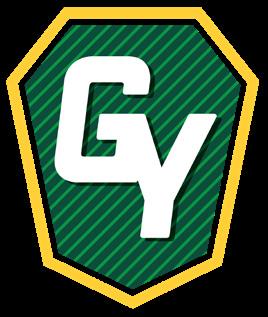
The youth and young adults that attended this year’s National Grange Convention on the Carnival Horizon made up an excellent group of young leaders from across the country. Serving in a wide variety of leadership roles such as Ambassadors and National Youth Officers, the group engaged in morning workshops and afternoon teambuilding activities to hone leadership skills.
This year gave youth the opportunity to participate in a Leadership Academy at Sea. Written and led by Jennie Gentry, Jennifer Danko, and Samantha Hanson, the academy held 4 sessions during each of the days the cruise ship was at sea. Each session offered different topics and lessons with a focus on leadership training and self-growth.
Participants also received a workbook that followed each session as they learned important subjects including leadership values, emotional intelligence, using empathy as a leader, goal setting and effective communication. Each session also brought on group discussion, self-reflection, and whole group hands-on activities.
This interactive academy was not only important to building confidence as leaders but also gave youth attendees a chance to grow personal relationships with each other. Each participant also received a certificate of completion that can be used as a resume builder. When expressing how much she enjoyed this new leadership academy, Ashlan Smith, National Grange Youth Ambassador from PA, stated, “I really enjoyed the entire academy. The self-reflection helped me to focus more on my leadership goals for the future while the group discussion helped me discover more values that I want to practice in my own life. I loved the interaction. It was very well organized, and I wish more youth could experience something like this through the Grange.”
Outside of the academy, youth and young adults spent each afternoon together engaging in activities offered by the cruise line to build connections and to practice team building. One of the biggest highlights was the day they completed the cruise line’s ropes course, wearing harnesses to complete obstacles suspended in the air on a windy ship deck. One youth completely froze upon climbing the first challenge due to a fear of heights. However, youth from different states rallied to support him as they guided him through the entire course without leaving his side. The look of achievement on his face when he completed the course was pure joy with a sense of self-confidence and
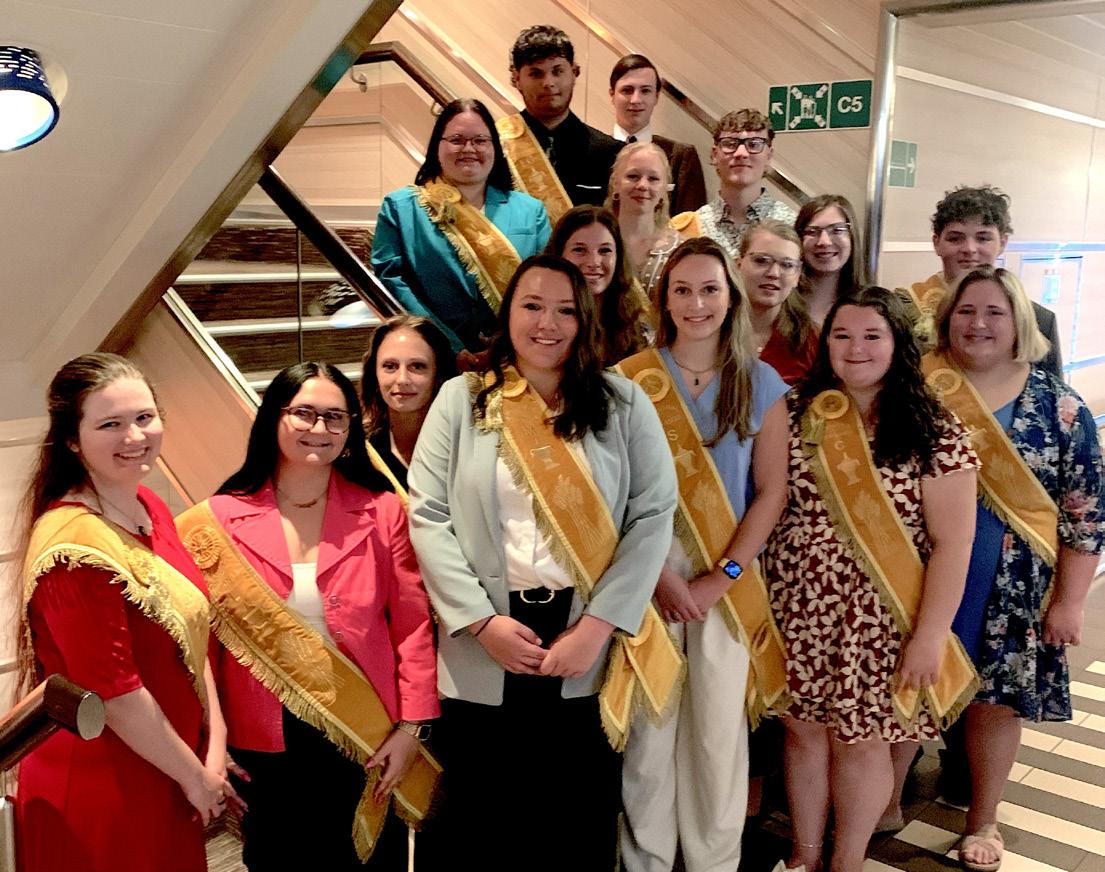
continued on page 16

Premium tax credits help individuals and families lower the cost of health insurance purchased through the Health Insurance Marketplace
During the pandemic, Congress temporarily expanded these credits to make coverage more affordable for more people, especially middle-income and rural households

Premiums may increase sharply - some rural counties are projected to see increases of over 100%.
Fewer people may be able to afford coverage, leading to higher uninsured rates (30–40% increases projected in some rural states).
Rural hospitals and clinics may face reduced revenue, putting essential services and sometimes entire facilities at risk
Families may have to make difficult choices about health care vs. other basic needs.

What is Congress debating?
Lawmakers are deciding whether to:
Extend the enhanced tax credits
Modify them
Allow them to expire
This discussion involves concerns about affordability, federal spending, rural health stability, and long-term access to care
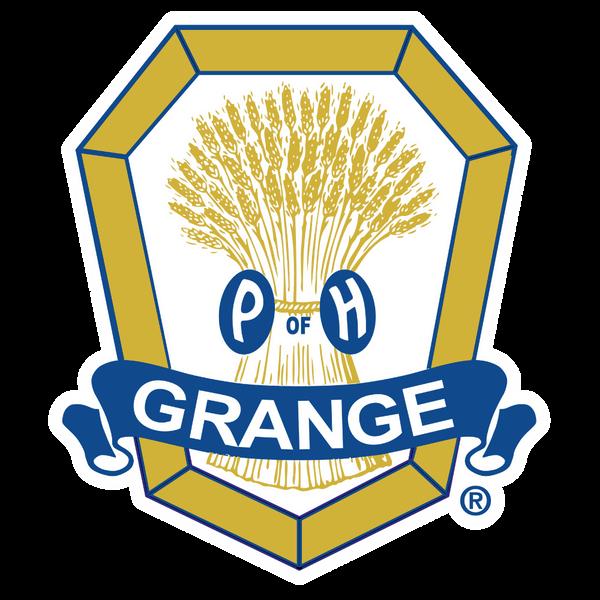

Rural families often face higher insurance premiums and have fewer plan choices. Incomes tend to be lower in rural areas, meaning premium increases hit harder Many rural hospitals already operate on thin margins; when more people are uninsured, hospitals absorb higher levels of uncompensated care, increasing financial strain

The Grange has always championed: Affordable access to health care
Strong rural hospitals and clinics
Healthy, thriving rural communities
Ensuring rural families can obtain health insurance directly supports the Grange’s mission of strengthening the quality of life in America’s small towns and agricultural communities

Stay informed about how changes could affect your family and local health providers.
Share this fact sheet with friends and neighbors.
Contact your Members of Congress if you want them to understand how important affordable health coverage is to rural communities.
Support local hospitals and clinics by participating in community health events, screenings, and education efforts



Stonebraker, president of the Maryland State Grange and a longtime advocate for agricultural education, continues in his role during a period of modernization and strategic growth for the Foundation. He previously served as treasurer and brings both nonprofit governance experience and a doctorate in organizational leadership focused on rural community development.
Strawder, a relatively new member of the Kansas State Grange, serves as president of Otter Creek Grange #1493 and state membership director. Known for her community
engagement work, ranging from family events to fundraising that eliminated student lunch debt, she brings a strong background in finance and nonprofit service. She is a member of the Foundation’s donor circle, the 1-in-1,000 Club. Following her election, the board selected Strawder to serve as the new treasurer for the Grange Foundation.
The remaining advisory board members include Marty Billquist of Montana and Mark Gibbons, president of Potomac Grange #1 in Washington, D.C. They serve
gratitude for his friends. But the real treat was watching these young leaders guide and support each other, acting as cheerleaders, never criticizing. It was beautiful to watch.
On Saturday morning at the end of the cruise, youth stepped into their national offices and opened the National Grange Session. Instead of opening with a drill, they entered the room while being introduced in a fun way with high fives and enthusiastic greetings, a great way to change things up from the normal opening. Officers were led by President Taylor Rogers, NC, and they all did a great job of continuing the tradition of opening session for the convention.
After the convention, several big award announcements were made. Nathan Lesh, PA, received the National Grange Community Service Award while Nettie Hartley, RI, received the National Grange Junior Mentor Award, two stand-out honors in the program. Pennsylvania and North Carolina received the Distinguished State Youth Program Award for their work with youth in their states. Juliana Piers won the Reels Contest for social media.
In the biggest announcement of our program, three new young leaders were named to the 2026 National Grange Ambassador Team. The new team includes youth Caroline Barber, NC, and Sadie Johnson, PA, and young adult Jomni Tarbell of NY. We are excited to see these ladies in action as they lead in 2026.
However, we must also thank the amazing 2025 team for their hard work and leadership this year: Taylor Rogers, NC, and Ashlan and Shae Smith, PA. All three have led well and put their whole hearts into the program. Shae Smith even wrapped up our Leadership Academy with a team-bonding exercise that helped our amazing group of youth connect in a more meaningful way before departing the cruise. We give our utmost thanks to these three wonderful leaders.
alongside the six members of the National Grange Executive Committee, who sit on the Foundation board by virtue of their offices: Christine Hamp, National Grange President, who also serves as president of the Grange Foundation; John Benedik of New Jersey, National Grange Vice President and Chairman of the Foundation Board; Susan Noah of Oregon; William “Buddy” Overstreet of Texas; Joe Stefenoni of California; and Walter Hartley of Rhode Island.
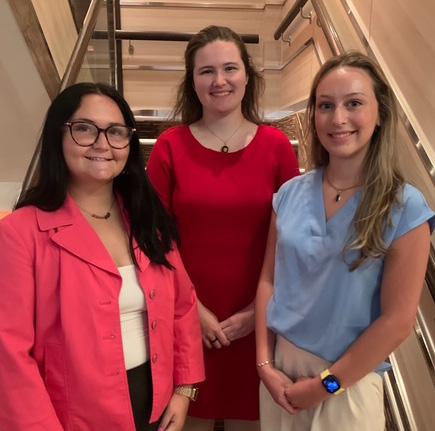
National Grange Youth
The convention may have looked a little different this year, but the bonds created by our youth felt stronger, and their engagement in the Leadership Academy was much more meaningful because they walked away with something extremely important: more confidence and selfgrowth as leaders.
Courtesy of Family Features
The holiday season is often a time of joy, connection and celebration. For millions of families across the country, however, it is also a season of uncertainty, wondering how to put food on the table or meet other essential needs. According to the USDA, more than 47.4 million people in the United States experience food insecurity each year.
That’s why, each holiday season, thousands of Charles Schwab employees come together to fight hunger and strengthen the communities where they live and work. Through employee meal-packing events and nonprofit grants, volunteers and partners help families access nutritious meals and vital support during the holidays and beyond.
“As we gather with loved ones this season, it’s important to remember that not all of our neighbors have that security,” said Kristine Dixon, managing director of Charles Schwab Community Affairs. “By working side-by-side with local hunger relief organizations, we’re helping ensure more families can share in the joy of a holiday meal and the peace of knowing they are supported.”
As you prepare for the holidays, here are a few ways you can help address hunger relief and support your neighbors.
Donate to a Local Food Bank
Food banks and pantries are at the heart of efforts to make nutritious food accessible for all. Inflation and rising costs of living have stretched budgets thin, making it harder for families to afford groceries. Nonperishable donations such as canned goods, pasta and rice are always in high demand. Monetary donations often go even further, giving food banks the ability to purchase exactly what is needed most.
The gift of time is just as valuable as food donations. Food banks and hunger relief nonprofits rely on volunteers to

sort, pack and distribute meals. Even a few hours can make a meaningful difference, adding up to thousands of volunteer hours to help nonprofits meet urgent needs during the holiday season and year-round.
No single organization can solve hunger alone. Collective action from neighbors, companies, nonprofits and others is what creates lasting impact. This year, Schwab employees will join forces with partners like Harvest Pack to pack more than 1 million nutritious meals for families across the country. Supporting these types of efforts, whether through donations, volunteering or spreading awareness, can expand the impact.
Hunger is about more than food; it’s about stability and opportunity. By giving, volunteering and partnering with organizations that serve families in need, you can make the holiday season brighter for millions of Americans.
Learn more at aboutschwab.com/season-of-giving.
Discover incredible holiday deals with MemberDeals!
Grange members can exclusive savings on everything from travel essentials — like car rentals and hotels — to unforgettable experiences, including theme parks, performances, and sporting events.
Plus, find special seasonal discounts on computers, jewelry, phones, vision products, and so much more.
This holiday season, stretch your budget further and check off every gift on your list with MemberDeals. Visit Visit https://www.memberdeals.com/nationalgrange/?login=1 today to start saving.
Savings include:
• Walt Disney World & Disneyland
• Universal Orlando & Universal
Studios Hollywood
• Sea World
• Six Flags
• Busch Gardens
• LEGOLAND
• Hersheypark
• Sesame Place
• Water Parks
• Zoos & Aquariums
• Hotels
• Shows, Sports, & Concerts

• Movie tickets at AMC, Regal and more
• Rental Cars (Avis, Budget, Hertz, & others)
• Shopping Deals
• and much more!


